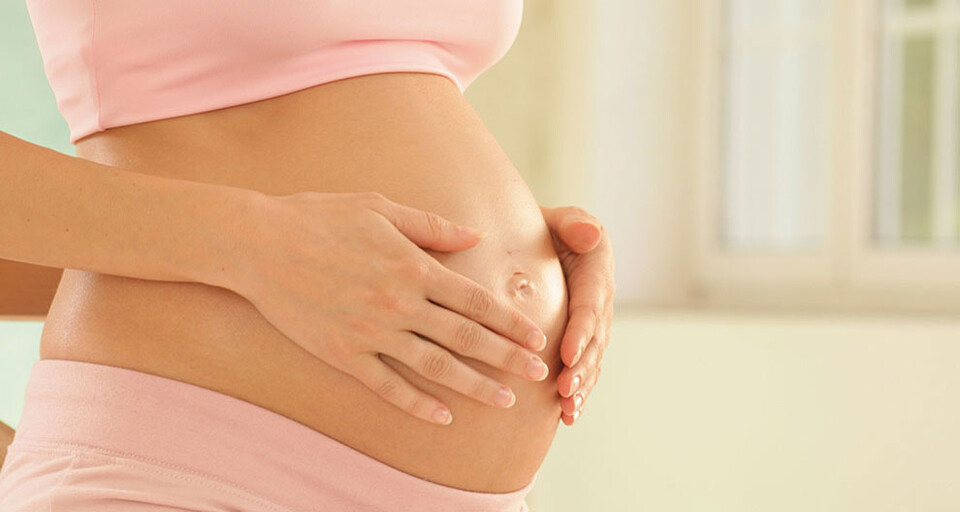Nausea and vomiting in pregnancy as known as morning sickness, is a common experience during pregnancy. Some pregnant women may face morning sickness during the day or night, and for some, it can persist throughout the entire pregnancy. Although morning sickness is usually not harmful to the developing baby, it can significantly affect a woman's quality of life during pregnancy. Understanding how to manage and cope with morning sickness can help alleviate discomfort and ensure a smoother pregnancy journey.
Nausea and vomiting in pregnancy – Dealing with morning sickness

What is morning sickness?
Morning sickness is nausea in pregnancy, that occurs during pregnancy especially in the first few months.
What are the causes of nausea in pregnancy?
It could be due to many reasons for pregnant women to have nausea in pregnancy. There are many uncertainties on the causes of morning sickness, but healthcare providers believe it’s a mix of physical and chemical changes. Below are some of the causes of nausea in pregnancy:
- Low blood glucose level
- Hormonal changes during pregnancy
- Blood pressure fluxes
- Metabolism changes
- Stress and anxiety
- Fatigue
- Certain food’s taste or smell
- Motion sickness
- Heat or warm weather
Best remedies for nausea and vomiting during pregnancy
There are a few ways for pregnant women to relieve morning sickness symptoms. Below are some tips for surviving nausea and vomiting during pregnancy:
- Eating foods that don’t aggravate your stomach spicy or oily food
- Eating small meals, please do not skip your meal
- Hydrating throughout the day
- Avoiding other triggers, like odors that may cause nausea
- Getting lots of sleep
- Make tea with real grated ginger
- Make sure your rooms are well-ventilated to get fresh air
If these methods do not help, please seek professional advice from healthcare providers. Below is some common advice that will be given by healthcare providers:
- Over the counter (OTC) products, such as vitamin B6 or doxylamine (there is a prescription pill that combines both) *
- Prescription antiemetics*
*Note that not all antiemetics are safe to use during pregnancy. Read labels carefully. Same goes to supplements. Do not take a supplement or OTC medication without first consulting a doctor or pharmacist.Some sources suggest traditional medical therapies such as acupressure and acupuncture to relieve morning sickness. However, there is not enough evidence showing that these therapies are effective for treating nausea due to pregnancy.
Can you prevent morning sickness?
There's no sure way to prevent morning sickness. However, taking the following steps may help to minimize nausea during pregnancy:
- Stay hydrated.
- Get enough sleep.
- Ventilate your home and workspace to eliminate odors that trigger nausea.
- Avoid spicy or fatty foods.
- Eat small meals.
- Avoid fatty foods.
- Avoid cigarette smoke.
Living a healthy lifestyle and eating a balanced diet could be the main aspects for morning sickness prevention.
How to deal with morning sickness at work
Dealing with morning sickness at work is not an easy task, below is some advice on how to deal with morning sickness at work:
- Stay Hydrated
This step is very important as If you are constantly getting sick, your body needs to be replenished with liquids. You can bring along cold water to work as the cold water can help alleviate nausea. Drinks like lemonade and ginger tea can also help to relieve nausea but be aware of the sugar intake.
- Keep some snacks at your workplace
You might need to eat several small meals during the day as eating too much might also cause nausea. Please be reminded never to skip any meals. This way, your metabolism will continue to work throughout the day and hopefully prevent some sickness. Keep some healthy snacks like saltine crackers, peppermints etc. at your desk. Stay away from coffee and spicy foods.
- Take breaks for fresh air
If it feels a bit stuffy in your office or you just need a break, step outside for a moment. The feeling of fresh air will help you relax and ease your churning stomach, especially if you’re triggered by certain scents inside the office.
- Keep a dustbin or plastic bag near you for emergencies
The term “morning sickness” does not mean that it only happens during morning time, as nausea and/or vomiting may strike at any time of day. There might come a time when the nausea hits you like a wave, and you don’t have time to make it to the bathroom. It is better for you to keep a dustbin or a plastic bag nearby in case of an emergency.
- Seek professional advice from healthcare providers.
Finally, if you’re really concerned with your symptoms or if the sickness has persisted well into the second trimester of your pregnancy, please seek advice from your doctor. There are certain medications that can help ease the problem.
Frequency and duration
1. What pregnancy week does nausea start?
Generally, morning sickness starts around the fifth to sixth week of pregnancy, peaking around week nine before going away by the third or fourth month. Every person can experience this differently.
2. How long does morning sickness last?
According to research, most morning sickness will be resolved between weeks 14 and 16(after the first trimester) of pregnancy. Around 15% to 20% of women have morning sickness that lasts into the second trimester, and for 5% of women it lasts until delivery (Smith et al.,2023. According to other research done by Lacroix et al.,90% of women have resolved morning sickness by 22 weeks.
3. Is morning sickness dangerous?
Morning sickness is a common occurence in around 70-80% of pregnant women. Generally, it is mild and tends to resolve itself after the first trimester. Women who have mild nausea and vomiting in early pregnancy should not be worried as it is unlikely to cause any adverse effect to them or their fetus. Most pregnant women do not need medical help and can be managed at home.
Frequently asked questions on morning sickness:
When does morning sickness start?
Generally, morning sickness starts around the fifth to sixth week of pregnancy, peaking around week nine before going away by the third or fourth month. Every person can experience this differently.
What causes nausea in pregnancy?
It could be due to many reasons for pregnant women to have nausea in pregnancy. There are many uncertainties on the causes of morning sickness, but healthcare providers believe it’s a mix of physical and chemical changes. Below are some of the causes of nausea in pregnancy:
· Low blood glucose level· Hormonal changes during pregnancy· Blood pressure fluxes· Metabolism changes· Stress and anxiety· Fatigue· Certain food’s taste or smell· Motion sickness· Heat or warm weather
How to prevent nausea during pregnancy?
There's no sure way to prevent nausea during pregnancy. However, taking the following steps may help to minimize nausea during pregnancy:
· Stay hydrated.
· Get enough sleep.
· Ventilate your home and workspace to eliminate odors that trigger nausea.
· Avoid spicy or fatty foods.
· Eat small meals.
· Avoid fatty foods.
· Avoid cigarette smoke.
Living a healthy lifestyle and eating a balanced diet could be the main aspects for morning sickness prevention.
What to do when vomiting during pregnancy?
There are a few ways for pregnant women to relieve nausea/ vomiting during pregnancy. Below are some tips for surviving nausea and vomiting during pregnancy:
· Eating foods that don’t aggravate your stomach such as spicy or oily food.
· Eating small meals throughout the day and not skipping meals..
· Hydrating throughout the day.
· Avoiding other triggers, like odors that may cause nausea.
· Getting lots of sleep.
· Preparing tea with real grated ginger.
· Making sure your rooms are well-ventilated to get fresh air.
If these methods do not help, please seek professional advice from healthcare providers. Below is some common advice that will be given by healthcare providers:
· Over the counter (OTC) products, such as vitamin B6 or doxylamine (there is a prescription pill that combines both) *
· Prescription antiemetics*
*Note that not all antiemetics are safe to use during pregnancy. Read labels carefully. Same goes to supplements. Do not take a supplement or OTC medication without first consulting a doctor or pharmacist. Some sources suggest traditional medical therapies such as acupressure and acupuncture to relieve morning sickness. However, there is not enough evidence showing that these therapies are effective for treating nausea due to pregnancy.




